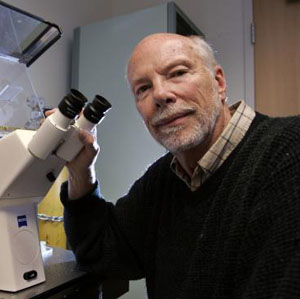
David Deamer
Research professor of Biomolecular EngineeringUniversity of California, Santa Cruz
David Deamer is best known for his pioneering studies of how cellular life can begin on habitable planets such as the early Earth and Mars. A research professor of Biomolecular Engineering at the University of California, Santa Cruz, Deamer uses laboratory simulations of hot spring conditions that would have been abundant on the Earth four billion years ago. He has demonstrated that simple cell-like structures called protocells spontaneously assemble when organic solutions are exposed to cycles of wetting and drying. Protocells are not “alive” in the usual sense, but populations of protocells can undergo processes of selection and evolution that lead to the emergence of primitive living systems.
Deamer also has the goal of doing “reality checks” of laboratory simulations in prebiotic analogue sites. To this end, he has performed field studies in hydrothermal regions associated with volcanoes in Kamchatka (Russia), Hawaii, Iceland, Mount Lassen (California), and most recently in Hell’s Gate New Zealand. Deamer served as president of the International Society for the Study of the Origin of Life (ISSOL) from 2011 to 2014 and was a Guggenheim Fellow at the Australian National University in Canberra where he investigated organic compounds in the Murchison meteorite. Deamer is author or co-author of 200+ research publications that have been cited over 30,000 times in the literature. His most recent book is Assembling Life: How Can Life Begin on the Earth and Other Habitable Planets, published by Oxford University Press in 2019.
